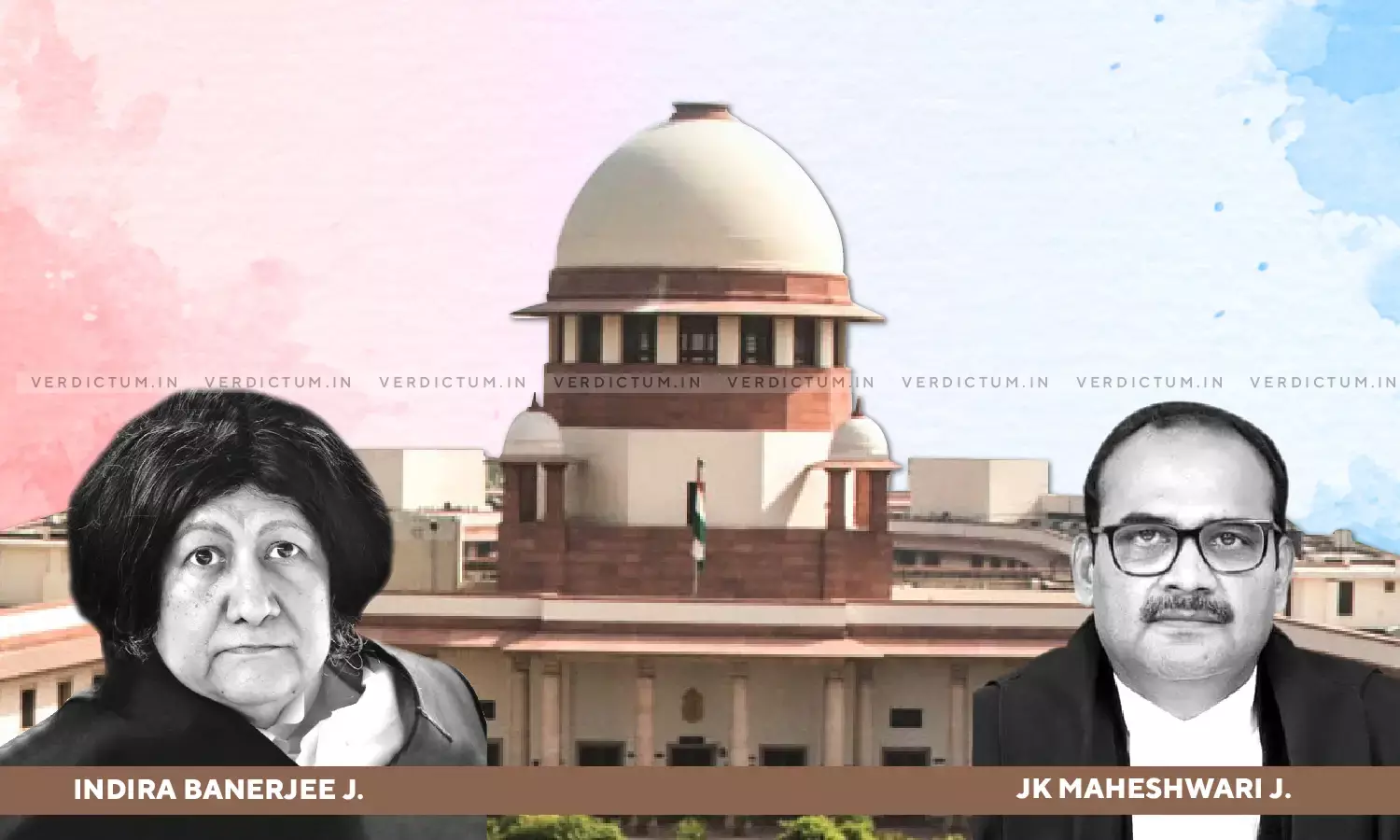Permanent Establishment Enquiry For Issuance Of Certificate U/s. 197 Of Income Tax Act: SC Delivers Split Verdict
Permanent Establishment Enquiry For Issuance Of Certificate U/s. 197 Of Income Tax Act: SC Delivers Split Verdict

A two-Judge Bench of the Supreme Court comprising Justice Indira Banerjee and Justice J.K. Maheshwari has delivered a spilt verdict arising out of the difference of opinion.
Justice Banerjee held that : "Whether the Appellant had PE or not, during the Assessment Year in question, is a disputed factual issue, which has to be determined on the basis of the scope, extent, nature and duration of activities in India. Whether project activity in India continued for a period of more than nine months, for taxability in India in terms of the AADT, is a question of fact, that has to be determined separately for each Assessment Year."
Justice Maheshwari held that: "The department may enquire about establishment of PE and income attributable to that PE in assessment proceeding but while dealing the issue of issuance of certificate under Section 197(1) relying upon said issues by the High Court is not justified."
Counsel Bhargava V. Desai appeared for the Appellant before the Apex Court.
This appeal was filed against the judgement of Delhi High Court which dismissed the writ filed by the Appellant against refusal of Respondent No. 1 to modify the certificate issued to the Appellant for Financial Year 2019-2020 under Section 197 of the Income Tax Act, 1961 for TDS @ 4% in respect of payment received by the Appellant from ONGC towards work done out of India as also within India. The Appellant is a company incorporated under the laws of UAE and thus, the provisions of the Avoidance of Double Taxation between India and UAE apply in determining the taxable income of the Appellant under the Act.
The contention of the Appellant before the Court was that a certificate of Nil TDS, for payments received in respect of activities outside India, should have been issued
to the Appellant, in deference to decisions rendered by various Appellate Authorities from the Assessment Years 2007-08 to 2015-16, opining that income in respect of activities out of India was not taxable in India and as also the judgments of the Delhi High Court referred to above.
Justice Banerjee:
Justice Banerjee opined that the High Court rightly held the question of whether the Appellant had Permanent Establishment could not possibly be undertaken in an enquiry for issuance of certificate under Section 197 of the Act given the time frame permissible in law for deciding an application specifically when the regular assessment had been completed qua preceding year.
The Court made following pertinent observations:
"There is no such infirmity in the reasoning of the High Court which calls for interference of this Court under Article 136 of the Constitution of India. As rightly held by the High Court, since the Appellant requested issuance of Certificate for deduction of TDS at 4% of taxable value it is not for the Appellant to challenge the certificate. Moreover, it appears that in the final assessment for one or two preceding Assessment Years it was found that the Appellant did have PE in India. Appeals are pending. In any event, Tax deducted at source is adjustable against the tax, if any, ultimately assessed as payable by the Assessee and any excess tax deducted is refundable with interest. Interference is not warranted at this stage."
Hence, the Appeal was dismissed by Justice Banerjee.
Justice Maheshwari:
Justice Maheshwari disagreed with Justice Banerjee and gave separate reasons for the same. The Court made the following observations on the issue at hand:
"In my view, distinction drawn, accepting the contention of the revenue by the High Court ignoring admission of issuing certificate for both types of contracts is completely misplaced. In fact, the certificate under Section 197(1) is issued during a financial year and on closing of the said financial year, assessment may be made after submission of the return of income and documents with respect to the income from the contract of that particular year. The department may enquire about establishment of PE and income attributable to that PE in assessment proceeding but while dealing the issue of issuance of certificate under Section 197(1) relying upon said issues by the High Court is not justified."
The Court held that since there was no change in circumstances and situation of Appellant for FY 2017-18 and 2018-19 and 2019-20 is the same, however, the principle of consistency ought to be following while considering application under Section 197 of the IT Act.
The Court held that the judgement of the High Court is without considering the perspective and scope of issuance of certificate.
The Court allowed the appeal and set aside the view of the High Court.
The matter has now been placed before the Chief Justice Of India so that an appropriate Bench can hear the same.
Cause Title - National Petroleum Construction Company v. Deputy Commissioner of Income Tax, Circle 2(2), International Taxation, New Delhi & Anr.

